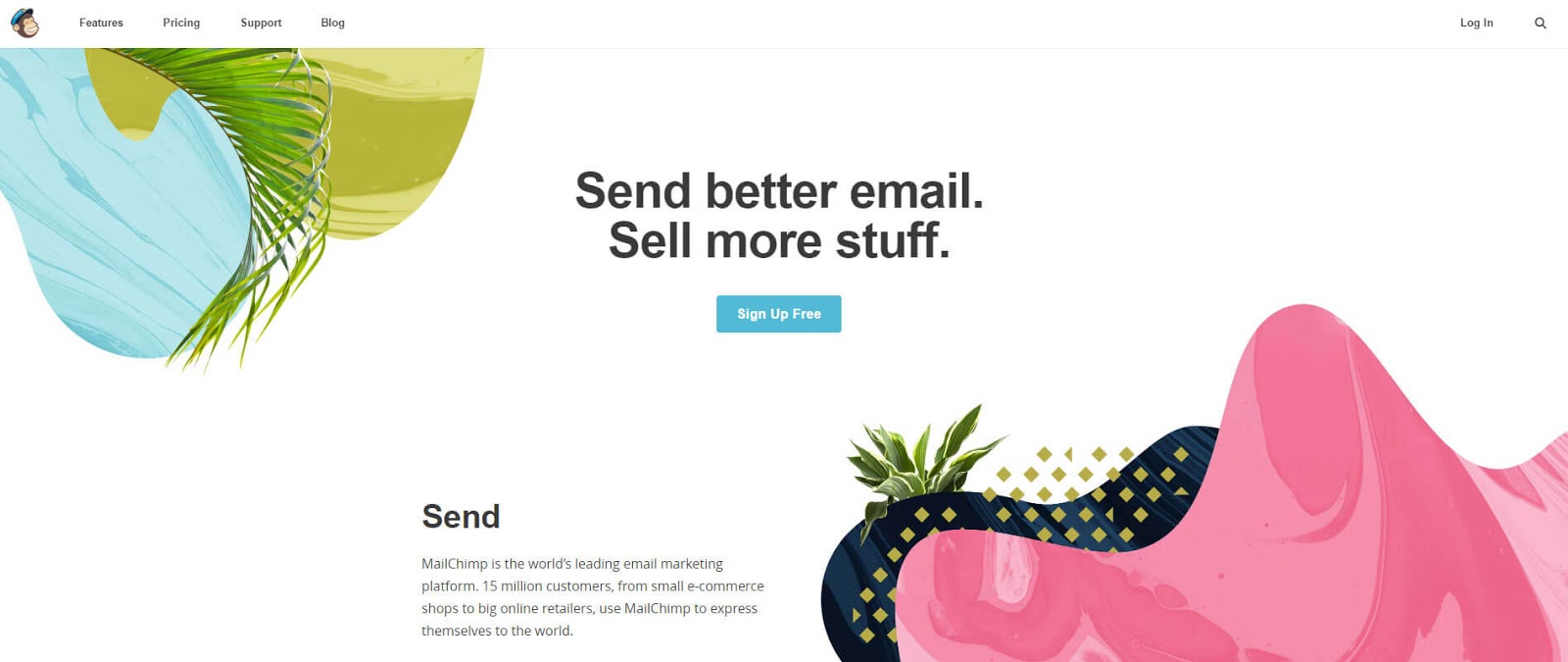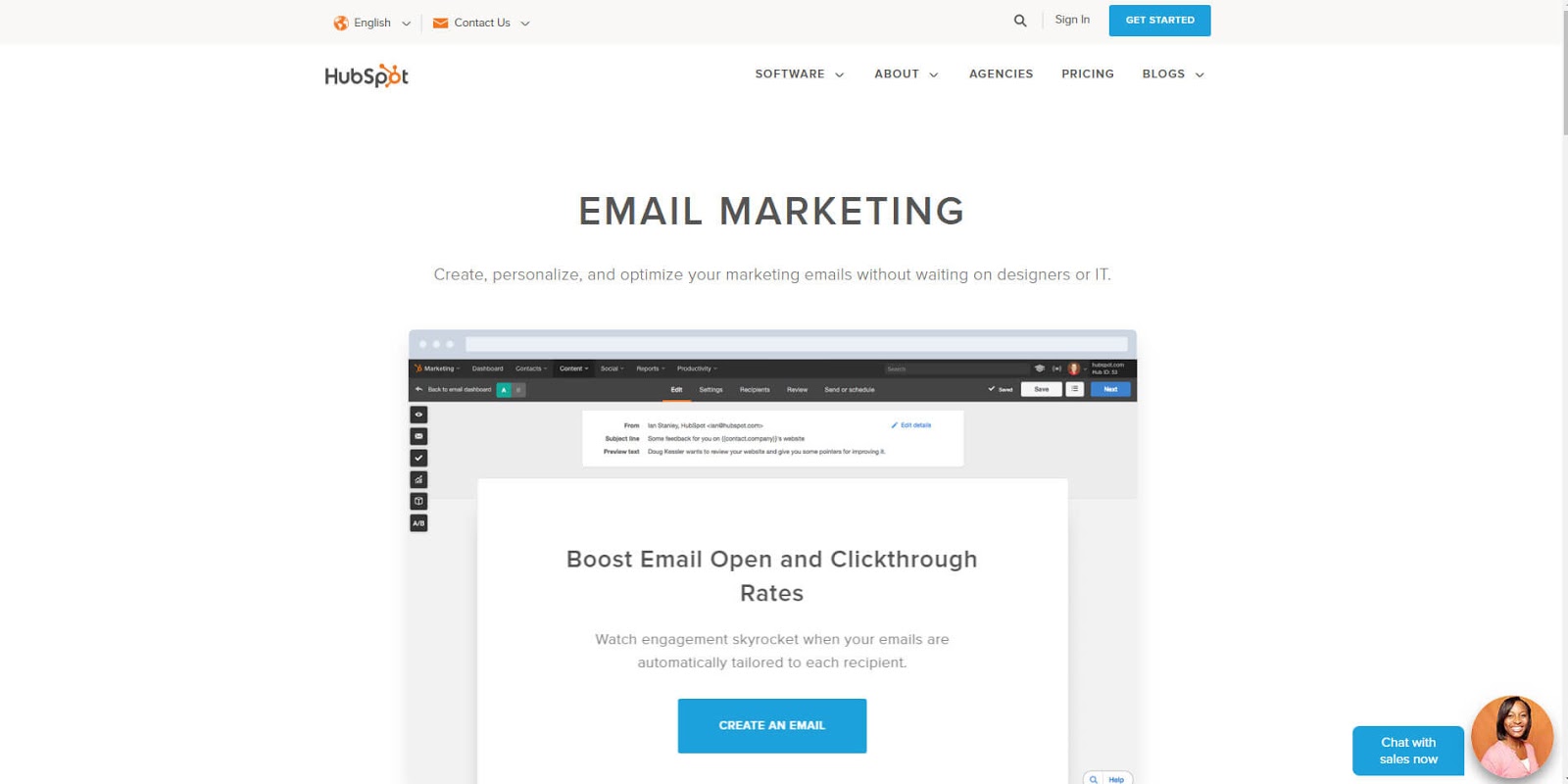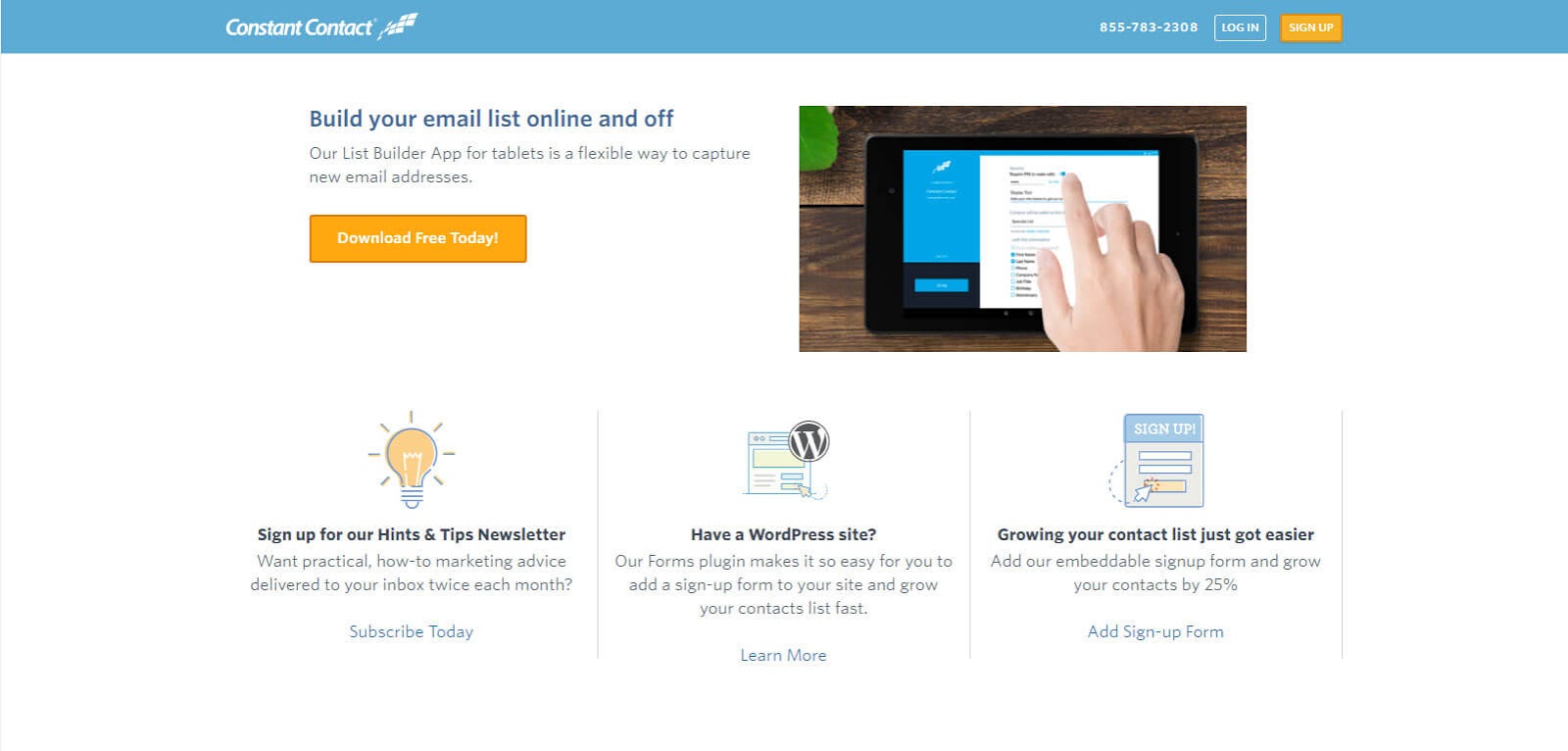
Email marketing is a major asset to any digital marketing strategy. Contacts on your email list have already opted-in to receive your communications, which makes them one step closer to hearing what you have to say. Not to mention, companies who send sales emails see remarkable engagement from their email lists. In fact, “81% of online shoppers who receive emails based on previous shopping habits were at least somewhat likely to make a purchase as a result of targeted email” (eMarketer).
Before getting started with email marketing, you’ll need to choose from the variety of email marketing services available. Each service offers different tools, capabilities, and integrations. In order to choose the best service for your digital marketing strategy, you should take into consideration your audience, experience level, and goals.
In this article, we compare three popular email marketing tools to help business owners and marketers determine which email marketing service is the best fit.
MailChimp

When it comes to integration with other softwares, MailChimp excels.
Companies with digital stores can easily integrate several of the most popular eCommerce solutions within MailChimp emails to streamline the customer experience. Think custom coupons, emails triggered by items left in the shopping cart, and more.
MailChimp also sports a number of pre-designed templates that reflect modern, responsive design. Though users have the ability to code a branded email template from scratch, no coding experience is required to customize one of their existing templates for enewsletters, announcements, and confirmation emails.
In terms of automation, MailChimp offers a wide variety of automated email types, such as welcome messages, educational course series, user on-boarding, and more. One of the downsides to the MailChimp email editor is the dynamic content and customization setup. Rather than selecting dynamic content through an easy-to-navigate builder or tool, you’ll need specific field codes and if-then statements to set up dynamic content for segmenting messaging.
HubSpot

HubSpot email tools include templates and suggested campaigns as well.
What sets HubSpot apart from MailChimp and Constant Contact is that the email marketing tools are part of a bigger set of inbound marketing services. Since HubSpot acts as a kind of lead-nurturing CRM, email campaigns are tied to bigger marketing pushes and tracked by buyer personas and/or where subscribers are in their buyer’s journey.
Unlike MailChimp, HubSpots services include landing pages and form integration, rather then being limited to third-party integrations. Depending on your company size, budget, and investment in Inbound Marketing efforts, HubSpot has a heftier price tag per month than MailChimp + Integrations but you get the whole kit-and-caboodle.
Constant Contact

Constant Contact launched in 1998 specifically as a tool for small businesses and nonprofits.
For many companies and organizations, the all-in-one list management, email marketing, and event registration covers many of the basic needs for fundraisers or conventions typically hosted by these types of entities. It is relatively affordable, starting at $20 / month and there is a 60 day free trial. In addition to many of the same features as a paid MailChimp account, Constant Contact offers phone support.
Unlike HubSpot and MailChimp, Constant Contact is a bit behind the times with some key tools for smart email marketing. For example, A/B split testing is not an option with any Constant Contact account at this time. This example is one of many that illustrate the slow, lagging progress for many updates that Constant Contact is known for.
Constant Contact also integrates with services, like Leadpages, to help customers leverage landing pages, forms, and lead generation. When it comes to event management in particular, Constant Contact is a robust tool to help register, track, and follow up with charity events, concerts and shows, or professional conventions.
So, how do you choose an email marketing tool?
Marketers are fortunate to have so many options for email management. Here at TBH Creative, we recommend HubSpot for clients willing to invest and MailChimp for those who need a simpler, more affordable solution. With so many options, if you’re considering investing in a new email service, it is important to do you research and know your goals before digging in.
Check out these posts from our archive to get started with your email marketing strategy:
